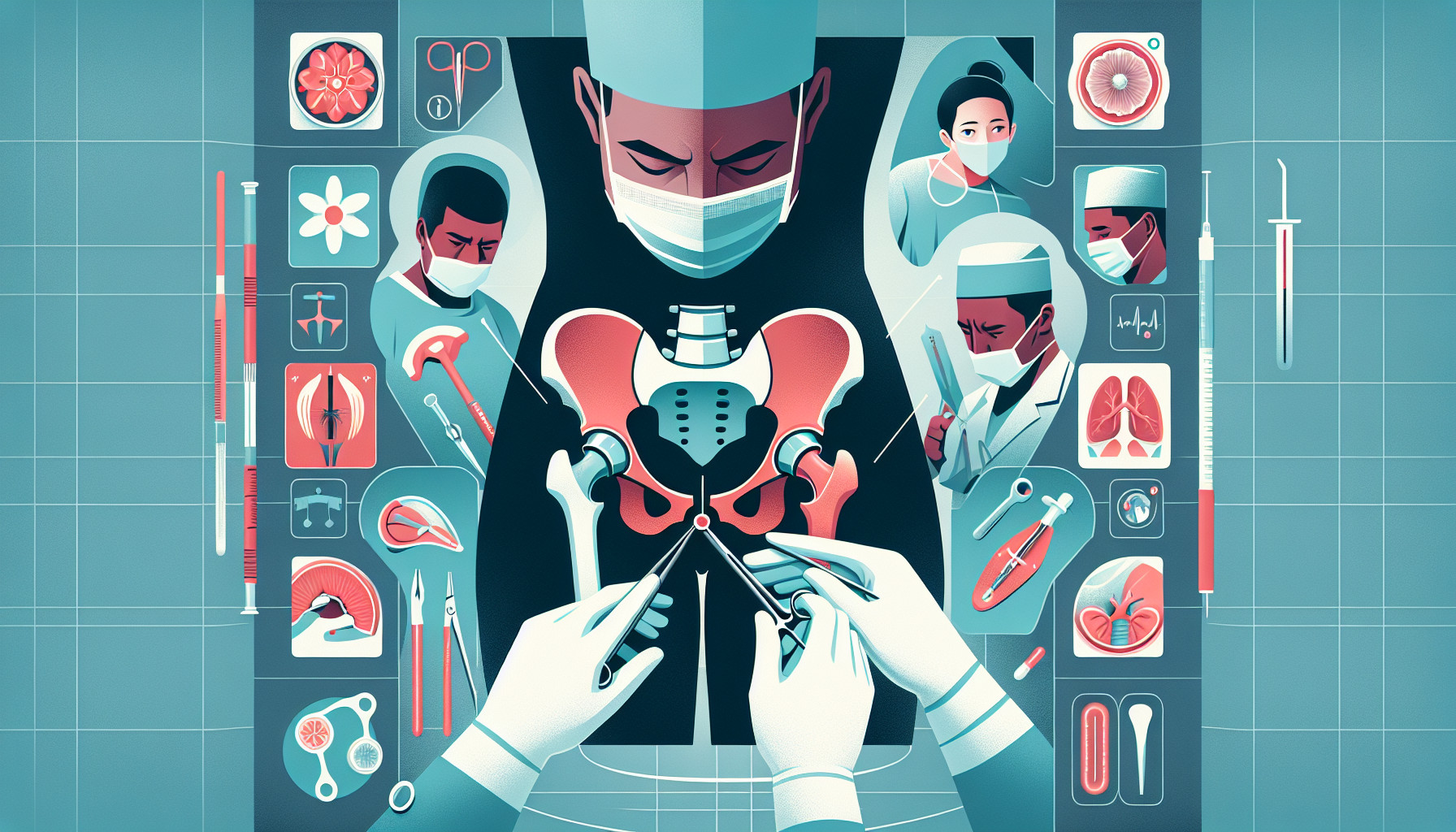Our Summary
This research paper explores the effects of outpatient (same-day discharge) versus inpatient (overnight stay) hip or knee replacement surgeries on a patient’s physical function. The study involved a review of seven other studies, which included a total of 1,876 patients. The results were mixed, suggesting that the choice between inpatient or outpatient surgery should not be based solely on the expected physical outcome. However, since outpatient surgeries have been proven to be more cost-effective without increasing the risk of complications, they could be a better choice if the post-operative physical function is similar for both.
FAQs
- What was the main focus of the research paper on hip or knee replacement surgeries?
- How many studies and patients were involved in the research on inpatient versus outpatient hip or knee replacement surgeries?
- Should the decision between inpatient or outpatient surgery be based solely on the expected physical outcome?
Doctor’s Tip
One helpful tip a doctor might tell a patient about hip replacement surgery is to follow the rehabilitation plan diligently. Physical therapy and exercises are crucial for regaining strength and mobility in the hip joint after surgery. It is important to listen to your healthcare team and not push yourself too hard too soon. Consistency and patience in following the rehabilitation plan will help ensure a successful recovery and optimal physical function in the long run.
Suitable For
Patients who are typically recommended hip replacement surgery include those who have severe hip pain and stiffness that limits their ability to perform daily activities, such as walking, climbing stairs, and getting in and out of chairs. Other common indications for hip replacement surgery include hip arthritis, hip fractures, avascular necrosis, and hip dysplasia.
It is important for patients considering hip replacement surgery to consult with their orthopedic surgeon to determine if they are a suitable candidate for the procedure. Factors that may impact the recommendation for hip replacement surgery include the severity of the hip joint damage, the patient’s overall health and medical history, and their willingness and ability to participate in post-operative rehabilitation.
Overall, patients who are in good overall health, have realistic expectations for the surgery, and are willing to commit to a comprehensive rehabilitation program are typically recommended for hip replacement surgery. However, each patient’s case is unique, and it is important for them to discuss their individual circumstances with their healthcare provider to determine the best course of treatment for their hip pain and dysfunction.
Timeline
Before hip replacement:
- Patient undergoes pre-operative testing and evaluation to determine if they are a suitable candidate for surgery
- Patient may receive physical therapy or other prehabilitation to optimize their physical function before surgery
- Patient may need to make arrangements for post-operative care and support at home
- Patient undergoes hip replacement surgery
After hip replacement:
- Patient is monitored in the hospital for any complications and to manage pain
- Patient begins physical therapy and rehabilitation to regain strength and mobility in the hip
- Patient may need assistive devices such as crutches or a walker for a period of time
- Patient gradually resumes daily activities and works towards full recovery
- Patient follows up with their surgeon for post-operative appointments and monitoring of progress
Overall, the timeline for a patient before and after hip replacement can vary depending on individual factors such as age, overall health, and the extent of the surgery. It is important for patients to work closely with their healthcare team to optimize their recovery and achieve the best possible outcome.
What to Ask Your Doctor
- What are the potential risks and complications associated with hip replacement surgery?
- How long is the recovery time for hip replacement surgery?
- What kind of physical therapy or rehabilitation will be needed after the surgery?
- What are the long-term effects of hip replacement surgery on physical function?
- How will my pain be managed after the surgery?
- What are the differences between outpatient and inpatient hip replacement surgery in terms of physical outcomes?
- How will my surgeon determine if I am a suitable candidate for outpatient hip replacement surgery?
- What are the advantages and disadvantages of outpatient versus inpatient hip replacement surgery?
- Will I need assistance at home during the recovery period after hip replacement surgery?
- How frequently should follow-up appointments be scheduled after the surgery?
Reference
Authors: Sattler L, Kisaloff L, Cragnolini T, Peters R, Hing W. Journal: J Orthop Surg Res. 2022 Aug 2;17(1):372. doi: 10.1186/s13018-022-03270-7. PMID: 35918770
